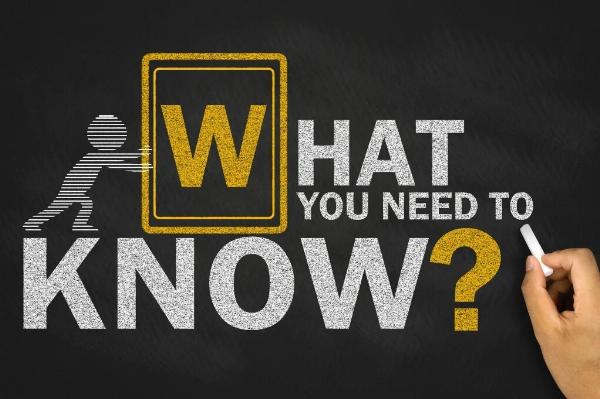International Police Clearance Certificates - What You Need to Know

Strong 8k brings an ultra-HD IPTV experience to your living room and your pocket.
In an increasingly interconnected world, the movement of people across borders for work, study, and residence is commonplace. One essential document that often arises in these contexts is the International Police Clearance Certificate (IPCC). This document plays a crucial role in ensuring the safety and integrity of communities worldwide. This article provides a comprehensive overview of International Police Clearance Certificates, their purpose, and everything you need to know about them.
What is an International Police Clearance Certificate?
An International Police Clearance Certificate, also known as a Police Clearance Certificate (PCC), Criminal Record Check, or Certificate of Good Conduct, is an official document issued by the police or a government agency. It certifies that the individual has no criminal record or provides details of any criminal history. This certificate is required for various purposes, such as employment, immigration, and adoption, among others.
Purpose of an International Police Clearance Certificate
Employment
Many employers, particularly in sensitive sectors such as education, healthcare, and finance, require an IPCC to ensure that prospective employees have a clean criminal record. This helps in maintaining a safe and secure working environment and protecting the organization’s reputation.
Immigration
Countries often require an IPCC as part of the visa application process to ensure that individuals entering the country do not pose a security risk. This is particularly common for work visas, residency permits, and citizenship applications. The certificate helps immigration authorities in assessing the background of applicants.
Adoption
For international adoption processes, authorities typically require a PCC to ensure that prospective adoptive parents do not have a criminal history that could endanger the welfare of the child. This step is crucial in protecting children and ensuring they are placed in safe and supportive environments.
Education
Students applying for educational programs or scholarships abroad may need to provide an IPCC as part of their application. This is particularly relevant for those applying for programs that involve working with vulnerable populations, such as minors.
Volunteering
Individuals seeking to volunteer, especially in roles involving vulnerable groups or in foreign countries, may be required to submit a PCC. This ensures that volunteers have a clear background and are suitable for the positions they are applying for.
Process of Obtaining an International Police Clearance Certificate
Step 1: Determine the Requirements
The first step in obtaining an IPCC is to determine the specific requirements of the requesting organization or authority. Different countries and institutions have varying requirements regarding the type of certificate needed, the issuing authority, and the validity period.
Step 2: Identify the Issuing Authority
In most countries, the police department or a designated government agency issues the PCC. It is important to identify the correct authority to avoid delays and ensure that the certificate is recognized by the requesting party.
Step 3: Gather Necessary Documents
Applicants typically need to provide several documents to obtain a PCC. These may include:
• A completed application form
• Proof of identity (passport, national ID card, etc.)
• Proof of address
• Recent passport-sized photographs
• Fingerprints (in some cases)
• Fee payment receipt
Step 4: Submit the Application
Once the necessary documents are gathered, the application can be submitted to the relevant authority. This can often be done in person, by mail, or online, depending on the issuing country’s procedures.
Step 5: Processing Time
The processing time for an IPCC varies by country and can range from a few days to several weeks. Applicants should plan accordingly and apply well in advance of any deadlines.
Step 6: Receive the Certificate
Once the application is processed, the IPCC is issued and can be collected in person, received by mail, or downloaded online, depending on the method chosen during the application process.
Common Challenges and Solutions
Delays in Processing
One common challenge in obtaining an IPCC is delays in processing. To mitigate this, applicants should apply well in advance and ensure all documents are complete and accurate to avoid any back-and-forth communication.
Incomplete or Incorrect Applications
Incomplete or incorrect applications can lead to delays or rejections. Carefully following the instructions provided by the issuing authority and double-checking all documents before submission can help prevent this.
Multiple Certificates
Individuals who have lived in multiple countries may need to obtain PCCs from each country of residence. This can be time-consuming and complex. It is advisable to start the process early and contact the respective embassies or consulates for guidance.
Language Barriers
PCCs are often issued in the official language of the issuing country. If the requesting authority requires the certificate in a different language, a certified translation may be necessary. Engaging a professional translation service can ensure accuracy and acceptance of the translated document.
Country-Specific Procedures
United States
In the United States, a PCC can be obtained from local police departments or through the Federal Bureau of Investigation (FBI). The FBI provides a comprehensive background check that includes fingerprinting. Applicants can request this service online or by mail.
Canada
In Canada, the Royal Canadian Mounted Police (RCMP) is the main authority for issuing PCCs. Applicants need to submit their fingerprints to the RCMP for processing. Local police departments also provide PCCs for specific jurisdictions.
United Kingdom
In the United Kingdom, the Disclosure and Barring Service (DBS) conducts background checks. Applicants can apply for a Basic, Standard, or Enhanced DBS check, depending on the level of detail required. The application process can be completed online.
Australia
In Australia, the Australian Federal Police (AFP) issues National Police Checks. The application can be submitted online or by mail, and fingerprints may be required for certain purposes. Each state and territory also has its own police force that issues PCCs for local jurisdictions.
India
In India, the Ministry of External Affairs (MEA) and local police departments issue PCCs. Applicants need to submit their application through the Passport Seva portal or directly at the local police station. Fingerprints and a personal interview may be required.
Importance of an IPCC in a Globalized World
Ensuring Safety and Security
IPCCs play a vital role in ensuring the safety and security of communities worldwide. By verifying the criminal history of individuals, these certificates help in preventing potential threats and maintaining public safety.
Facilitating Global Mobility
As people increasingly move across borders for various purposes, IPCCs facilitate this mobility by providing a standardized way to verify the background of individuals. This helps in building trust and confidence among employers, educational institutions, and immigration authorities.
Enhancing Trust in International Transactions
In international business and other transactions, IPCCs help in building trust between parties. By verifying the background of individuals involved, these certificates contribute to the integrity and reliability of international dealings.
Supporting Law Enforcement Cooperation
IPCCs also support cooperation between law enforcement agencies across countries. By sharing information about criminal records, countries can work together to combat transnational crime and enhance global security.
International Police Clearance Certificates are essential documents that serve multiple purposes in today’s interconnected world. From ensuring safety and security to facilitating global mobility and enhancing trust in international transactions, IPCCs play a crucial role. Understanding the process of obtaining an IPCC, the common challenges, and the country-specific procedures can help individuals navigate this important requirement effectively. As global movement continues to rise, the importance of IPCCs in maintaining the integrity and security of communities worldwide cannot be overstated.
Note: IndiBlogHub features both user-submitted and editorial content. We do not verify third-party contributions. Read our Disclaimer and Privacy Policyfor details.


